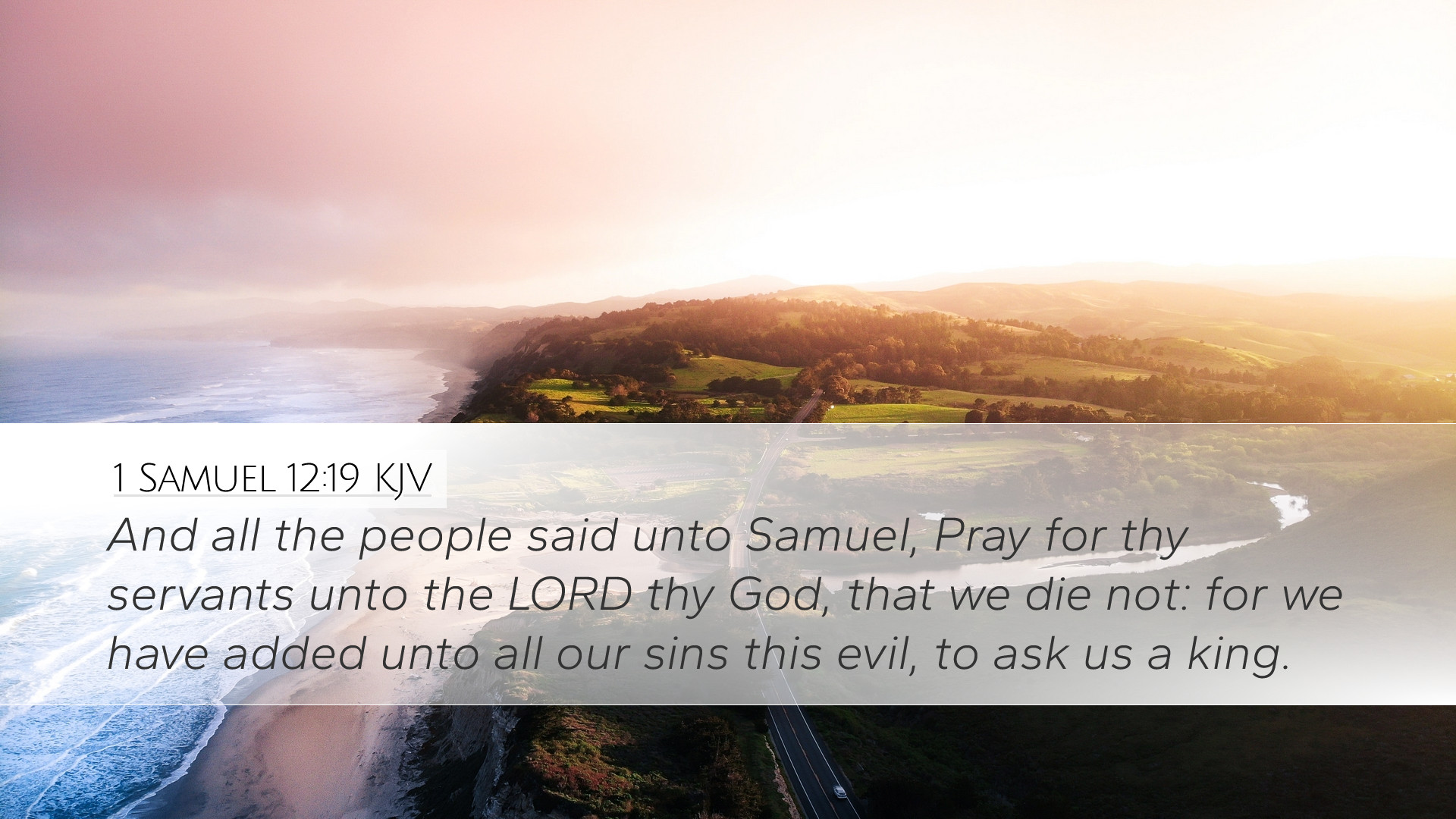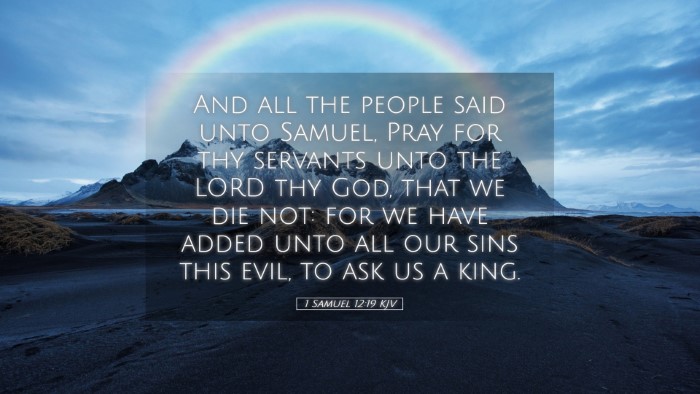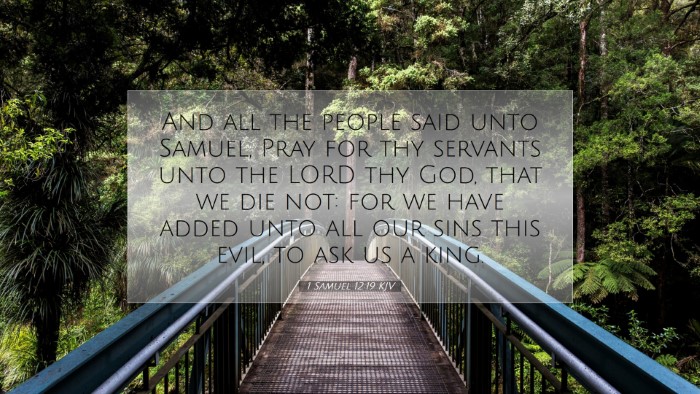Commentary on 1 Samuel 12:19
1 Samuel 12:19 states, “And all the people said to Samuel, 'Pray to the LORD your God for your servants, that we may not die; for we have added to all our sins this evil, to ask for ourselves a king.'” This verse captures a pivotal moment in Israel's history and reveals deep theological implications about leadership, sin, and intercession.
Contextual Background
To fully grasp the significance of this verse, it is crucial to consider the larger narrative in which it resides. As Israel transitions from a theocratic system of judges to monarchy, the people express a desire for a king, rejecting God’s direct leadership. Samuel, the prophet and judge, has just delivered a powerful address reminding them of their covenant with God. His warnings about the consequences of earthly kingship are met with the people’s insistence on having a human ruler.
Theological Insights
This verse reveals several key theological themes:
- The Nature of Sin: The people acknowledge their sinfulness in wanting a king. This reflects a profound understanding of sin not merely as individual acts of wrongdoing but as a relational rupture with God. Matthew Henry emphasizes that their demand for a king is an egregious offense against divine sovereignty.
- Intercessory Prayer: The request for Samuel to pray illustrates the important role of intercession. Adam Clarke notes that the people recognize their need for a mediator, a theme prevalent throughout Scripture. This highlights the seriousness of their situation and their hope in the power of prayer.
- Fear of Judgment: The phrase “that we may not die” denotes an acute awareness of the divine consequences of their actions. Albert Barnes comments on the fear of judgment common among the Israelites, suggesting that they understood the gravity of forsaking God’s way.
Commentary Excerpts
Matthew Henry
Matthew Henry expounds on this verse by reflecting on the gravity of the Israelites’ request. He observes that their acknowledgment of sin and desire for intercession shows a glimpse of repentance. He warns, however, that while they recognize their wrongdoing, their heart remains divided, as they still seek a king rather than returning to God wholly.
Albert Barnes
Albert Barnes comments on the actions of the people. He views their plea as a mix of fear and recognition of their rebellion against God. Barnes highlights the mercy of God through Samuel’s willingness to pray and intercede despite their failure. He frames this verse within the broader narrative of God’s patience and the people’s continual need for grace.
Adam Clarke
Adam Clarke provides insight into the practical implications of the Israelites’ actions. He explains that their desire for a king stemmed from worldly influences and a misunderstanding of what true leadership should be. Clarke emphasizes the contrast between divine kingship and human authority, encouraging readers to ponder the character of the leaders they choose to follow.
Applications for Today
This verse holds timeless truths applicable to contemporary believers:
- Understanding Authority: In a world that often prioritizes human leadership, this passage invites believers to evaluate their commitment to divine authority. It challenges Christians to seek God's guidance above all earthly powers.
- Repentance and Confession: The acknowledgment of sin is essential. Just as the Israelites recognized their failure, we too must be willing to confess our shortcomings and turn back to God.
- The Importance of Intercession: Samuel's role as intercessor serves as a model for believers today. This reminds the church of the power of prayer and the responsibility to support one another in seeking God’s mercy.
Conclusion
1 Samuel 12:19 encapsulates a critical moment of spiritual awakening amid human failure. The plea of the people illustrates not only their sin but also the hope found in repentance and prayer. By examining this verse through the lenses of Henry, Barnes, and Clarke, contemporary Christians can glean profound insights about leadership, sin, and the unwavering mercy of God.


